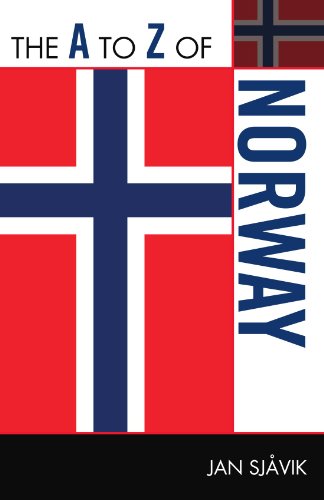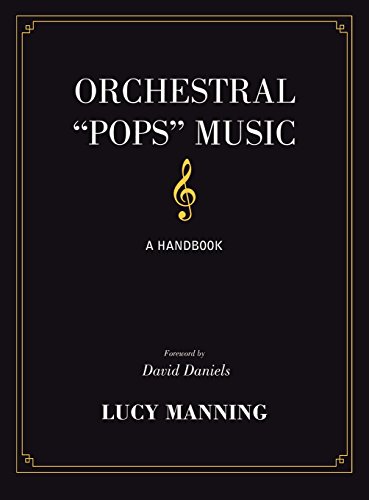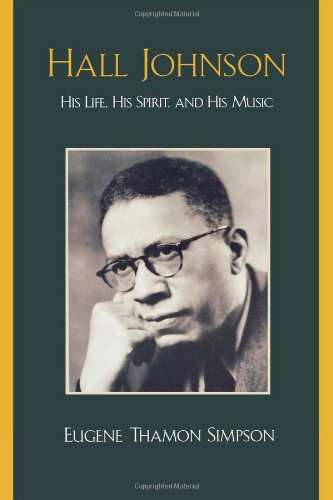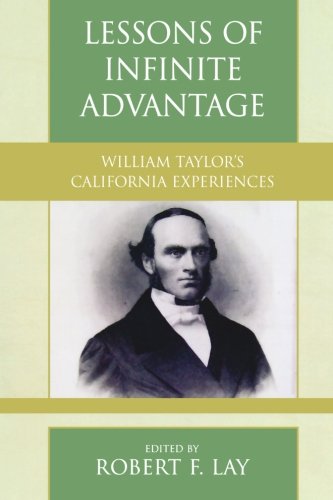Get Free Ebook Where the Dark and the Light Folks Meet: Race and the Mythology, Politics, and Business of Jazz (Studies in Jazz), by Randall Sandke
This is it guide Where The Dark And The Light Folks Meet: Race And The Mythology, Politics, And Business Of Jazz (Studies In Jazz), By Randall Sandke to be best seller recently. We provide you the most effective offer by obtaining the magnificent book Where The Dark And The Light Folks Meet: Race And The Mythology, Politics, And Business Of Jazz (Studies In Jazz), By Randall Sandke in this site. This Where The Dark And The Light Folks Meet: Race And The Mythology, Politics, And Business Of Jazz (Studies In Jazz), By Randall Sandke will certainly not only be the kind of book that is tough to discover. In this website, all types of books are provided. You could search title by title, writer by author, as well as author by author to find out the best book Where The Dark And The Light Folks Meet: Race And The Mythology, Politics, And Business Of Jazz (Studies In Jazz), By Randall Sandke that you could read currently.
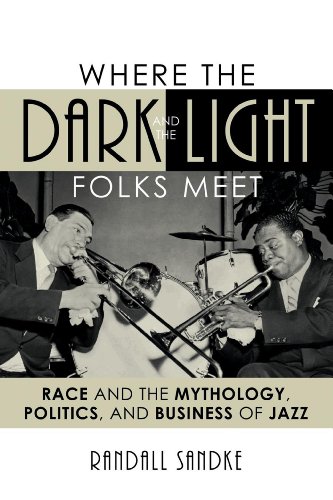
Where the Dark and the Light Folks Meet: Race and the Mythology, Politics, and Business of Jazz (Studies in Jazz), by Randall Sandke

Get Free Ebook Where the Dark and the Light Folks Meet: Race and the Mythology, Politics, and Business of Jazz (Studies in Jazz), by Randall Sandke
Simply for you today! Discover your preferred publication right here by downloading and install as well as getting the soft data of the e-book Where The Dark And The Light Folks Meet: Race And The Mythology, Politics, And Business Of Jazz (Studies In Jazz), By Randall Sandke This is not your time to traditionally likely to guide shops to acquire a book. Below, selections of book Where The Dark And The Light Folks Meet: Race And The Mythology, Politics, And Business Of Jazz (Studies In Jazz), By Randall Sandke and also collections are readily available to download. One of them is this Where The Dark And The Light Folks Meet: Race And The Mythology, Politics, And Business Of Jazz (Studies In Jazz), By Randall Sandke as your recommended e-book. Obtaining this publication Where The Dark And The Light Folks Meet: Race And The Mythology, Politics, And Business Of Jazz (Studies In Jazz), By Randall Sandke by on the internet in this website could be realized now by seeing the web link page to download and install. It will be very easy. Why should be here?
Do you ever understand guide Where The Dark And The Light Folks Meet: Race And The Mythology, Politics, And Business Of Jazz (Studies In Jazz), By Randall Sandke Yeah, this is a quite intriguing e-book to review. As we told previously, reading is not sort of obligation activity to do when we have to obligate. Reviewing ought to be a habit, a good habit. By reading Where The Dark And The Light Folks Meet: Race And The Mythology, Politics, And Business Of Jazz (Studies In Jazz), By Randall Sandke, you can open up the brand-new globe and also get the power from the world. Every little thing can be obtained through guide Where The Dark And The Light Folks Meet: Race And The Mythology, Politics, And Business Of Jazz (Studies In Jazz), By Randall Sandke Well in brief, e-book is very effective. As just what we supply you right below, this Where The Dark And The Light Folks Meet: Race And The Mythology, Politics, And Business Of Jazz (Studies In Jazz), By Randall Sandke is as one of reading e-book for you.
By reading this publication Where The Dark And The Light Folks Meet: Race And The Mythology, Politics, And Business Of Jazz (Studies In Jazz), By Randall Sandke, you will get the most effective thing to get. The new thing that you don't have to spend over cash to get to is by doing it on your own. So, what should you do now? Go to the link web page and also download and install guide Where The Dark And The Light Folks Meet: Race And The Mythology, Politics, And Business Of Jazz (Studies In Jazz), By Randall Sandke You could obtain this Where The Dark And The Light Folks Meet: Race And The Mythology, Politics, And Business Of Jazz (Studies In Jazz), By Randall Sandke by on the internet. It's so easy, isn't it? Nowadays, modern technology really assists you activities, this on the internet e-book Where The Dark And The Light Folks Meet: Race And The Mythology, Politics, And Business Of Jazz (Studies In Jazz), By Randall Sandke, is as well.
Be the very first to download this book Where The Dark And The Light Folks Meet: Race And The Mythology, Politics, And Business Of Jazz (Studies In Jazz), By Randall Sandke and also allow checked out by surface. It is quite simple to read this publication Where The Dark And The Light Folks Meet: Race And The Mythology, Politics, And Business Of Jazz (Studies In Jazz), By Randall Sandke since you do not have to bring this published Where The Dark And The Light Folks Meet: Race And The Mythology, Politics, And Business Of Jazz (Studies In Jazz), By Randall Sandke anywhere. Your soft data publication could be in our gizmo or computer so you can enjoy checking out anywhere and each time if required. This is why lots numbers of individuals likewise check out guides Where The Dark And The Light Folks Meet: Race And The Mythology, Politics, And Business Of Jazz (Studies In Jazz), By Randall Sandke in soft fie by downloading the publication. So, be one of them that take all advantages of reviewing guide Where The Dark And The Light Folks Meet: Race And The Mythology, Politics, And Business Of Jazz (Studies In Jazz), By Randall Sandke by on-line or on your soft data system.

Where the Dark and the Light Folks Meet tackles a controversial question: Is jazz the product of an insulated African-American environment, shut off from the rest of society by strictures of segregation and discrimination, or is it more properly understood as the juncture of a wide variety of influences under the broader umbrella of American culture? This book does not question that jazz was created and largely driven by African Americans, but rather posits that black culture has been more open to outside influences than most commentators are likely to admit. The majority of jazz writers, past and present, have embraced an exclusionary viewpoint.
Where the Dark and the Light Folks Meet begins by looking at many of these writers, from the birth of jazz history up to the present day, to see how and why their views have strayed from the historical record. This book challenges many widely held beliefs regarding the history and nature of jazz in an attempt to free jazz of the socio-political baggage that has so encumbered it. The result is a truer appreciation of the music and a greater understanding of the positive influence racial interaction and jazz music have had on each other.
- Sales Rank: #2223512 in Books
- Published on: 2010-01-25
- Original language: English
- Number of items: 1
- Dimensions: 9.46" h x .93" w x 6.43" l, 1.08 pounds
- Binding: Hardcover
- 288 pages
From Booklist
*Starred Review* The common belief that racial conflict characterizes jazz history is false, jazz trumpeter Sandke says. Instead, jazz is demonstrably a product of black-white cooperation, beginning in its prehistory in nineteenth-century blackface minstrel shows, which Sandke represents as a major venue for antislavery sentiment before the Civil War and which turned viciously racist only with the rise of Jim Crow in the 1890s. In the 1920s and ’30s, when jazz became synonymous with popular music, the top black and white bands were comparably well compensated. If jazz composers were often cheated out of royalties and copyrights, the culprits were black as well as white; sometimes they were musicians preying on other musicians. Bad history is to blame for the belief that jazz is sharply racially divided. Sandke scores such 1930s leftist-activist promoters as Vanderbilt scion John Hammond and field musicologist Alan Lomax for starting the racial-strife myths, activist and poet Leroi Jones/Amiri Baraka for exacerbating them, and—ruefully, for they are fellow players—jazz spokesmen such as Wynton Marsalis (whom Sandke recognizes as mellowing with age and wisdom) for perpetuating them. This amateur historian’s book, more lucid and straightforward than most professional jazz critic-chroniclers could dream of producing, deserves every history-minded jazz fan’s attention. --Ray Olson
Review
What Randy Sandke has to say in these pages is bound to make you think anew about jazz―agree with him or not. And he speaks from the heart. (Dan Morgenstern, director, Institute of Jazz Studies, Rutgers University; dean of jazz historians; editor, Studies in Jazz series)
With a much-needed blend of careful research, common sense, passion, insight, and (at times) indignation, Randy Sandke sets the record straight about how the divisive racial mythology of jazz's origins and nature came to be. One hopes that Where the Dark and the Light Folks Meet will do as much good as it deserves to do. (Larry Kart, author of Jazz In Search of Itself)
In this compelling adduction of new evidence and analysis, Sandke forensically dissects jazz history and shows it, to paraphrase Ralph Ellison, to be 'ever a tall tale told by inattentive idealists' where myth and legend frequently obscure a less prosaic truth. It is a book that needed to be written and seems sure to inspire countless lines of fresh academic enquiry. (Stuart Nicholson, author of Is Jazz Dead?: Or has It Moved to a New Address)
Randy Sandke's research and documentation are thorough. His insights and opinions are forthright. His book will infuriate its targets, those in the music world who place myth, race, nationality, sociology, politics and commerce above music itself. Everyone else will find it revealing, thought-provoking and helpful. (Doug Ramsey, author of Jazz Matters: Reflections on the Music and Some of its Makers)
Genuine research involves the discovery of unknown or neglected materials and their analysis in ways that yield fresh insights. Randy Sandke's book meets this standard and therefore warrants careful attention. It is neither the first nor last book on the subject, but an important and serious contribution to our deeper understanding of the music we love. (S. Frederick Starr, author of Red and Hot: The Fate of Jazz in the Soviet Union, 1917-91, and Louis Moreau Gottschalk)
Randy Sandke brings his wide range of experience as a jazz musician and composer to a discussion of jazz history and jazz criticism that is must reading for anyone interested in the elements―and the people―that have created the canons and contradictions of this endlessly fascinating art form. (George Avakian, record producer and jazz historian)
The common belief that racial conflict characterizes jazz history is false, jazz trumpeter Sandke says. Instead, jazz is demonstrably a product of black-white cooperation, beginning in its prehistory in nineteenth-century blackface minstrel shows, which Sandke represents as a major venue for antislavery sentiment before the Civil War and which turned viciously racist only with the rise of Jim Crow in the 1890s. In the 1920s and '30s, when jazz became synonymous with popular music, the top black and white bands were comparably well compensated. If jazz composers were often cheated out of royalties and copyrights, the culprits were black as well as white; sometimes they were musicians preying on other musicians. Bad history is to blame for the belief that jazz is sharply racially divided. Sandke scores such 1930s leftist-activist promoters as Vanderbilt scion John Hammond and field musicologist Alan Lomax for starting the racial-strife myths, activist and poet Leroi Jones/Amiri Baraka for exacerbating them, and-ruefully, for they are fellow players-jazz spokesmen such as Wynton Marsalis (whom Sandke recognizes as mellowing with age and wisdom) for perpetuating them. This amateur historian's book, more lucid and straightforward than most professional jazz critic-chroniclers could dream of producing, deserves every history-minded jazz fan's attention. (Booklist, Starred Review, February 2010)
A long-time jazz player and writer, Sandke here broaches a troublesome area of jazz, not to mention American life―race....Sandke takes a strong position on issues ranging from the political agendas of many jazz historians (from the early days to the present) to the more recent narrow redefinitions of jazz, largely by the more conservative (and influential) wing of jazz represented by Wynton Marsalis and writer Stanley Crouch. And, he asks, what myths continue to cloud understanding of jazz? Does the fact that jazz sprang from a black environment make white jazz musicians "inauthentic"? Sandke also explores who the winners and losers have been in the business of jazz, and who the audience has been. In contrast to some works about race and jazz, Sandke's is thoroughly researched and documented. He loves the music deeply and is frustrated that it may be compromised by politics, internal and external. His positions will likely draw fire―and praise. This is an important addition to the literature of jazz. Summing Up: Essential. All readers (CHOICE, August 2010)
In Where the Dark and the Light Folks Meet, musician and author Randall Sandke tackles the stubborn and controversial question of whether jazz is the product of an insulated African-American environment, shut off from the rest of society by strictures of segregation and discrimination; or whether it is more properly understood as the juncture of a wide variety of influences under the broader umbrella of American culture. His book takes the latter course and shows how the widely accepted exclusionary view has led to decades of misunderstanding surrounding the true history and nature of jazz. (All About Jazz)
This important book is both brave and provocative, challenging the reader to rethink flimsily-based, partisan assumptions. It is not a jazz history but an essential commentary on it. Open-minded jazz fans of all ages and interests should find it instructive and stimulating and a joy to read. (Jazz Journal)
Trumpeter Randy Sandke's new book, Where the Dark and the Light Folks Meet clearly and courageously explores race and the mythology, politics and business of jazz. (Jaz Fax, October 2010)
Sandke's book is quite important and should be read by anyone who does Jazz history or practices in the Jazz community today, or even just listens to Jazz. It may make you angry; it may go to great lengths to demonstrate a point...but it should be taken seriously. (Cadence Magazine)
A provocative, exhaustively researched and ambitiously analytical book about a significant and endlessly complicated topic: race and jazz. (Jazz Journalist Association’S Jja News)
Jazz trumpeter Sandke is also a music history scholar, and this carefully developed volume explores the origins and realities of debates about the development jazz in the context of race and culture. (Jazz Police)
Subtitled Race and the Mythology, Politics, and Business of Jazz, the book challenges the born-in-Africa jazz storyline....The book is hardly one-sided. It chronicles the long history of discrimination black musicians experienced, a practice extending from infamous bookings in the Jim Crow South to recording studios in major cities. It explores the sometimes-exploitive business relationships between white managers and celebrated 20th-century musicians, notably Irving Mills and Ellington and also Joe Glaser and Armstrong. (DownBeat Magazine)
Sandke has a strong independent streak, vouchsafed by the development of his own metatonal approach to music. Ten years in the writing, Sandke brings that same individual perspective to bear in his new book, his meticulous research amassing a wealth of facts unavailable in other accounts….Fascinating. (The New York City Jazz Record)
Randall Sandke’s book may have a mouthful of a title, but it very succinctly describes what the book is all about. In the space of 275 pages (counting the index), Sandke essentially tells us that everything (well, very many things) we’ve been taught about jazz history is bunk. Of course, he states it more elegantly than that, but the overall effect is that of pure revisionism....If jazz history means anything at all to you, you MUST read this book. (General Eclectic)
Sandke tackles the stubborn and controversial question of whether jazz is the product of an insulated African-American environment, shut off from the rest of society by strictures of segregation and discrimination; or whether it is more properly understood as the juncture of a wide variety of influences under the broader umbrella of American culture. This book takes the latter course and shows how the widely accepted exclusionary view has led to decades of misunderstanding surrounding the true history and nature of jazz.
About the Author
Randall Sandke has been a professional jazz musician for over 30 years. He is the author of Harmony for a New Millennium: An Introduction to Metatonal Music (2002) and has contributed to The Oxford Companion To Jazz and the Annual Review of Jazz Studies (2000).
Most helpful customer reviews
12 of 12 people found the following review helpful.
The history of jazz, written by a musician's musician . . .
By John Goldsby
Who invented jazz? Where did it come from? Who listened to whom, who played and hung out together, and who assimilated which musical influences from where?
Complex questions about the development of jazz music demand a thorough understanding of the musicians' points of view, coupled with impeccable research and an unbiased separation of fact from myth. Unfortunately, many critics, historians, and jazz writers over the years have contributed myth-based interpretations of jazz history. The story has often been skewed by poor journalism.
Randall Sandke, a brilliant trumpet player, composer, historian and author distills information from many firsthand sources, creating an accurate accounting of what really happened: from the facts and legends surrounding Congo Square, Storyville and Buddy Bolden, through the swing, bebop, cool, and avant-garde eras, to the modern politics of recording contracts, jazz festivals, and well-funded institutions like Jazz at Lincoln Center. Sandke challenges many well-known authorities on the topics of race and race relations in jazz, insisting that the debates over who created, developed, and contributed to jazz stay focused on facts. Sandke addresses hard-to-answer questions about where jazz came from, which influences and bloodlines its originators, protagonists and perpetuators possessed, and how cats of every color, every shade, and every gender have enriched the music. To understand the state of jazz today, Sandke maintains that we must understand history in an honest way.
In the chapter, It's Strictly Business, Sandke examines several high-profile relationships, like the partnership of Duke Ellington and his publisher Irving Mills. Was Mills taking advantage of Ellington? Would Ellington have been the star he became without Mills? Sandke presents all points of view and lets the reader decide, quoting interviews from Ellington himself, Mercer Ellington and Cab Calloway among many others. Sandke relates Calloway's publishing deal with Mills, which was similar to Ellington's--and surprisingly similar to some of the "360" deals that modern artists are signing with record companies and managers today. The relationship of manager Joe Glaser and Louis Armstrong is another beneficial partnership that created comparatively large fortunes for both parties. Sandke follows their relationship from its inception to the sad end; both men sharing a hospital room shortly before their passing in 1969.
In a brilliant look at the publishing business, Sandke tackles the tricky subject of copyrights and intellectual property rights in his chapter, Copyrights: Accounting Without Accountability. Sandke begins, "Other than an instrument (and perhaps a tuxedo), copyrights are the only work-related property a jazz musician is likely to own." He portrays the world of song rights ownership with clarity, cleverness, and hard facts; from W.C. Handy, Louis Armstrong, and The Original Dixieland Jazz Band to the exploitative tactics of Miles Davis, who appropriated many compositions from his band members and other musicians. Performing rights organizations (ASCAP, BMI) are dissected and held up for scrutiny through the eyes of this successful composer, player and author.
In the chapter, Is Everything About Race?, Sandke examines the history of the "one-drop" rule, implemented in 1896 by the Supreme Court. The ruling, intended to categorize all people by race, continues to have wide ranging implications in the jazz world and in American society in general. Sandke writes, "In my opinion the majority of jazz writers impale themselves on the spiky contradictions of America's quirky racial views. They position themselves on the side of racial equality, yet end up adhering to strict notions of racial classification. This was true in the 1930s and it's true now. Many jazz books continue to divide and classify musicians according to race as if segregation were still the law of the land."
I highly recommend this book to all music fans, musicians, and curious students of modern culture. Where the Dark and the Light Folks Meet: Race and the Mythology, Politics, and Business of Jazz raises the level of discussion about this great modern art form. A five-star accomplishment.
John Goldsby
Bassist & Author of The Jazz Bass Book - Technique and Tradition Book/CD (Softcover) (Bass Player Musician's Library)
10 of 11 people found the following review helpful.
REQUIRED READING FOR ANYONE WHO CARES ABOUT JAZZ
By Barry McCanna
When I first became interested in jazz, arguments about the music were between those who liked the traditional variety and those who preferred what was then called modern jazz. Since when the subject has been hijacked by those who argue that jazz was exclusively an African-American creation, and that it was subsequently appropriated by whites, who then exploited it to their own benefit to the detriment of its originators.
Anyone daring to question that view was liable to be branded a racist, and by making race the issue, its advocates have been able to consolidate their position. The tragedy is that this is having a stultifying effect upon the creation, marketing and appreciation of jazz.
In this timely book, musician Randall Sandke painstakingly examines the case for the exclusive view, by reference to historical sources, and in so doing sheds new light on such vexed issues as racial categorisation, segregation, copyright, earnings, and managers. The result will startle those who have accepted conventional wisdom, as purveyed by activist jazz writers and adopted unquestioningly by the liberal left. This book should be required reading for anyone who cares about the music and seeks a better understanding of its roots.
12 of 14 people found the following review helpful.
Groundbreaking Analysis and Insightful History
By ReaderinAmherst
This is an extraordinary book...accessible to the garden variety jazz fan but detailed and documented enough to please the stodgiest academic. Sandke tells the history of jazz as he argues his thesis that black musicians drew on a variety of traditions in creating this distinctively American art form. His insider's view of the jazz world is a bracing antidote to critics and professors whose observations are informed not by the reality of the working artist, but by the necessity of proving their theories correct, regardless of the facts. "Where the Dark and the Light Folks Meet" should be required reading for any student of jazz, just as Sandke's CDs should be required listening.
See all 11 customer reviews...
Where the Dark and the Light Folks Meet: Race and the Mythology, Politics, and Business of Jazz (Studies in Jazz), by Randall Sandke PDF
Where the Dark and the Light Folks Meet: Race and the Mythology, Politics, and Business of Jazz (Studies in Jazz), by Randall Sandke EPub
Where the Dark and the Light Folks Meet: Race and the Mythology, Politics, and Business of Jazz (Studies in Jazz), by Randall Sandke Doc
Where the Dark and the Light Folks Meet: Race and the Mythology, Politics, and Business of Jazz (Studies in Jazz), by Randall Sandke iBooks
Where the Dark and the Light Folks Meet: Race and the Mythology, Politics, and Business of Jazz (Studies in Jazz), by Randall Sandke rtf
Where the Dark and the Light Folks Meet: Race and the Mythology, Politics, and Business of Jazz (Studies in Jazz), by Randall Sandke Mobipocket
Where the Dark and the Light Folks Meet: Race and the Mythology, Politics, and Business of Jazz (Studies in Jazz), by Randall Sandke Kindle
** Get Free Ebook Where the Dark and the Light Folks Meet: Race and the Mythology, Politics, and Business of Jazz (Studies in Jazz), by Randall Sandke Doc
** Get Free Ebook Where the Dark and the Light Folks Meet: Race and the Mythology, Politics, and Business of Jazz (Studies in Jazz), by Randall Sandke Doc
** Get Free Ebook Where the Dark and the Light Folks Meet: Race and the Mythology, Politics, and Business of Jazz (Studies in Jazz), by Randall Sandke Doc
** Get Free Ebook Where the Dark and the Light Folks Meet: Race and the Mythology, Politics, and Business of Jazz (Studies in Jazz), by Randall Sandke Doc





